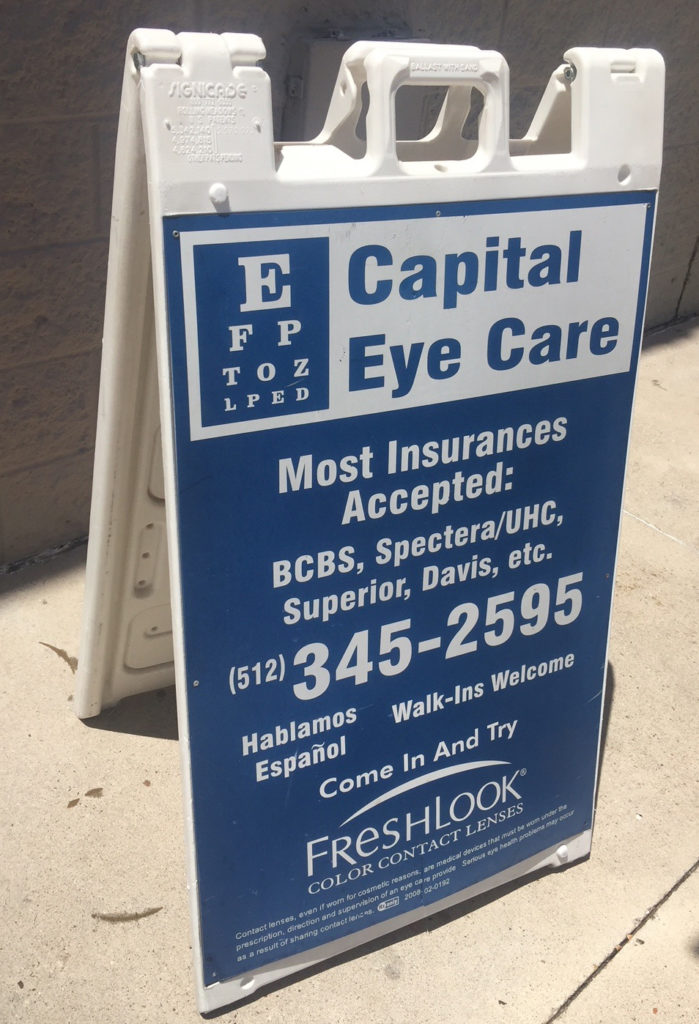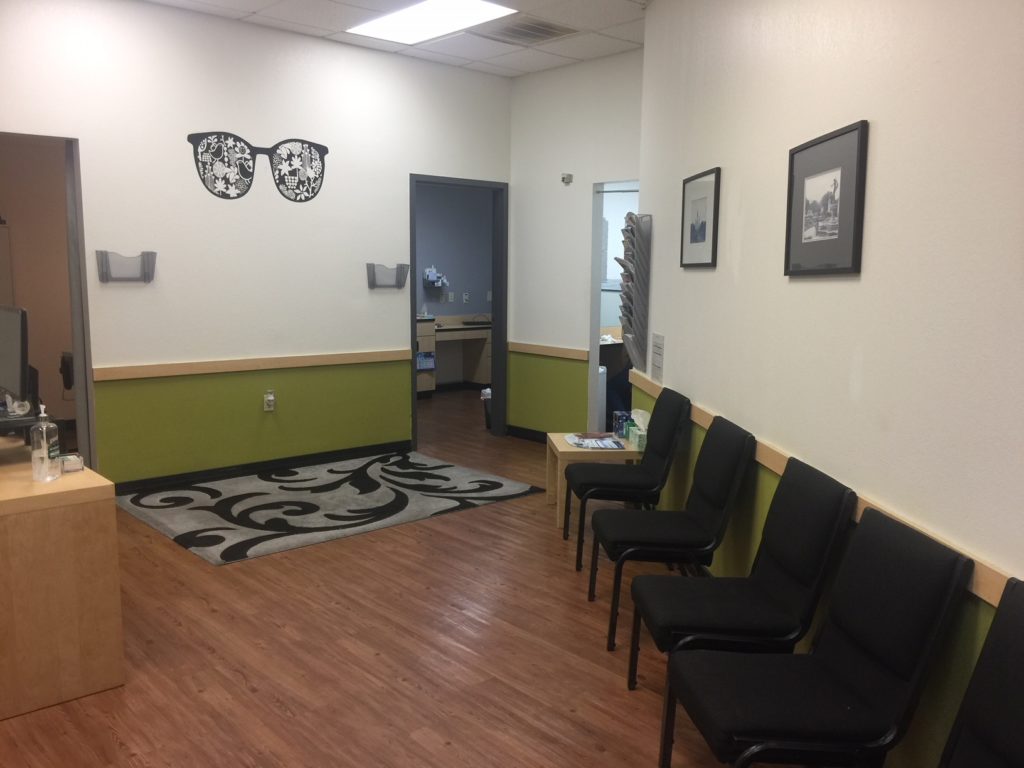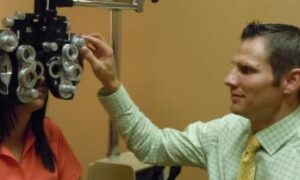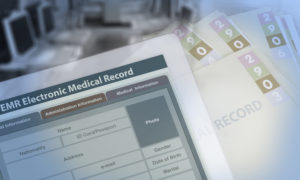By Carla Gasparini, OD

Sept. 12, 2018
A practice housed within a corporate sublease guarantees foot traffic and many inquiring about exams. Current and prospective patients can drop by for an exam while at the store shopping. You provide convenience and much-needed eyecare. It’s a win-win for you and your community.
In my 15 years practicing optometry, I have had three corporate sublease practices, all housed within Walmarts/Sam’s Clubs in the Austin, Texas, area. I still have two of those locations, but recently sold one to an associate doctor I formerly employed. My offices focus on medical eyecare, rather than selling eyewear. I do not own an optical shop at either of my two locations.
Here is what I have learned about the opportunities and challenges of launching a practice within a corporate sublease.
 Why a Corporate Sublease?
Why a Corporate Sublease?
My first job out of optometry school was with a successful practice located next door to a LensCrafters. This practice was my first introduction to practicing in a corporate-affiliated location. They were a high-tech, high-touch practice that based their income on medical eyecare services and contact lens sales, rather than eyewear sales.
I realized I could be successful within my own corporate sublease, and that my ideal practice could be in any practice setting as long as I maintained a high level of exceptional patient care.
I realized that the things that I liked about optometry did not involve selling eyewear. I prefer to practice medical eyecare optometry serving all age groups within a broad socio-economic range. I see a great deal of pathology at Walmart, and it makes me happy that I can deliver quality care for people who are looking for affordable and accessible healthcare options.

Sign outside the Walmart where Dr. Gasparini’s practice is located. Dr. Gasparini says she enjoys the opportunity to have a practice with a medical eyecare focus, located in a place with such high foot traffic.
How To Get Started
Once I moved to Austin, Texas, I contacted several corporate district managers and regional talent acquisition managers at corporate companies, and asked them about opportunities in the area I wanted to live near.
Walmart/Sam’s Club made it easy for me to join them, and they allowed me sufficient autonomy in how I wanted to run my own office.
Establish Your Relationship with Corporate Landlord
I rent the space from Walmart/Sam’s Club, and pay a monthly rental fee that includes the cost of the equipment they provide and service. Some leases (not in Texas) include employees, but I would rather hire my own.
Corporate sublease rent is based on market rates, so one subleased space might be more expensive per month than another if you are in a city versus rural setting. Some corporate locations come with electronic health record, or digital automated refractors/phoropters, built into the practice model. This was not offered to me in my current leases.
However, my Walmart leases come with all utilities paid, an autorefractor/autokeratometer, autoperimeter, autolensometer, computer projector, BIO, retinoscope, opthalmoscope, penlight, 78D and 20D lenses, and CL fitting diagnostic trials from certain key vendors.
In 2015, I bought my own EHR for my offices, and paid a computer tech to install the computers for me. In addition, I purchased a non-mydriatic retinal camera/anterior segment camera and a Bleph Ex to treat my patients.
My office space is independently managed. I am in a two-door state, in which eyecare offices located within corporate stores must have their own entrances. The optical manager and I meet to talk about eyewear promotions, so we are on the same page in how the practice is marketed.
People may be tempted to try to sue a corporate landlord with deep pockets, so I was required by Walmart/Sam’s Club to state in my malpractice and business liability insurance that Walmart/Sam’s Club is protected from lawsuits against my practice.

The reception area in Dr. Gasparini’s office. She says having a practice located in a Walmart gives her a chance to make care accessible to people who otherwise might not think to have an eye exam.
Get Started
You can start the process of finding a corporate sublease by visiting corporate web sites, and contacting their respective Regional Territory Manager for Talent Acquisitions. You can also learn about sublease opportunities by attending your local state optometric and national conferences. There you can speak to upper-level managers about opportunities within their companies. Let them know what states and cities interest you the most, and have a resume ready to hand out.
You must be licensed in the state before you sign a contract. Subleases in locations near major cities are competitive. Once you have a location selected, you must do your homework. Submit a detailed business plan. Understanding the target market where your sublease will be based also is essential. Corporate sublease contracts are usually for 3-5 years.
You must know your competition, and be well-versed in vision and medical plans. Medical billing is important for a sublease since most of your income stems from services, rather than products bought and sold at your office. You should aim to take courses in medical billing, or hire an experienced medical biller for your practice who can guide you.
Collaborate with Corporate Landlord in Marketing
My initial office signage and door decals were installed for me by my landlord. I have subsequently purchased an a-frame sign that also advertises my office. This sign is left outside during business hours only.
I have been allowed to market myself to Walmart’s employees during their morning meetings, and to offer them a friends and family discount. I did this initially to build buzz about the practice since my first patients were the people already working in my store location. Word-of-mouth spreads from those initial visits.
At first you will not be as busy as more established offices. You might only see 3-4 patients daily. Use this time to build positive patient relationships, and ask for friends-and-family referrals from every patient you meet.
I only advertise for my company, and use my company name, in all business marketing materials. I do not use the name of my landlord in any marketing, as Texas does not allow optometrists to place their landlord’s name on their marketing brochures, business cards or other promotional pieces.
Marketing my practice independently from my corporate landlord gives me an opportunity to show patients who I am. You have the chance with a sublease to be any kind of doctor you want to be. The essential lesson I’ve learned: to recognize that you can not be everything to everybody, but you can be the best doctor in whatever setting you choose.
These articles may also interest you:
Tips for Building Your Hispanic Patient Base
Starting a Practice Cold: The Big Questions Answered
 Carla Gavilanes Gasparini, OD, is the owner of Capital Eye Care & Hill Country Eye Care in Austin, Texas. To reach her: gaspariniod@gmail.com
Carla Gavilanes Gasparini, OD, is the owner of Capital Eye Care & Hill Country Eye Care in Austin, Texas. To reach her: gaspariniod@gmail.com



























